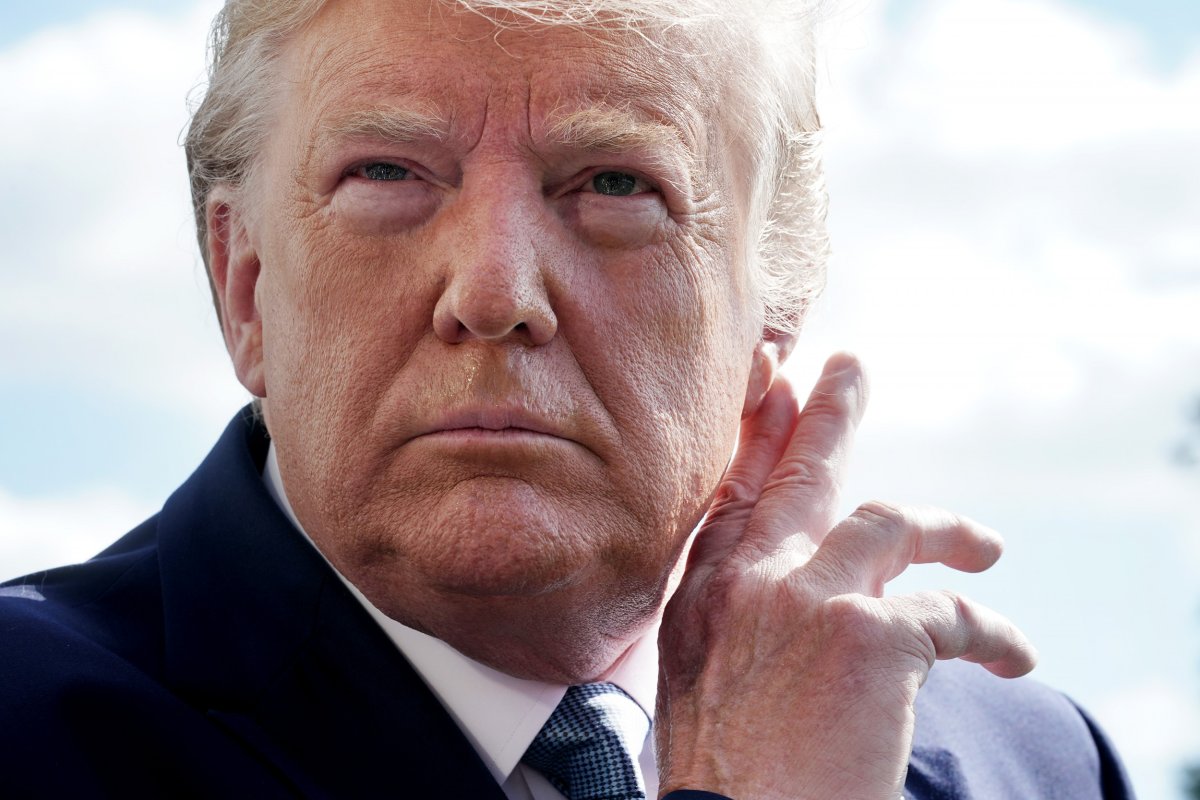Economists predicted that U.S. economic growth would slow in 2020, citing protectionist trade policies as a key source of decreasing expansion.
The National Association for Business Economics survey, released on Monday, added reiterated concerns about the economic impact of President Donald Trump's trade policies.
"NABE Outlook Survey panelists believe the U.S. economy will continue to expand into 2020, but they anticipate GDP growth will fall below 2 percent next year for the first time since 2016," NABE President Constance Hunter said in a press statement. "The consensus forecast calls for real GDP growth to slow from 2.9 percent in 2018 to 2.3 percent in 2019, and then to 1.8 percent in 2020."
The projections indicate that economic expansion could be significantly below the 3 percent growth rate targeted by the Trump administration and challenges the president's claims that his policies will greatly benefit the American economy.
Trade policy was the largest risk noted by economists, interviewed between September 9 and September 16; 53 percent said that trade policy was the key downside economic risk through 2020. Despite the concerns about slowing growth, though, no panelists predicted a recession would occur in 2020.
"The panel turned decidedly more pessimistic about the outlook over the summer, with 80 percent of participants viewing risks to the outlook as tilted to the downside," Survey Chair Gregory Daco said in a press release. "The rise in protectionism, pervasive trade policy uncertainty, and slower global growth are considered key downside risks to U.S. economic activity."
The NABE report follows economic reports warning of the growing impact of Trump's trade war with China, which has infused uncertainty into the global economy.
The World Trade Organization slashed its global growth forecasts last week, saying that trade tensions, along with cyclical and structural factors, were dragging down estimates. The same day the WTO released projections, data from the Institute of Supply Management showed that manufacturing declined to its lowest level since June 2009, prompting concerns. Two days later, a report on the service sector showed that activity had fallen to the lowest level in three years. The jobs report released Friday, which showed that 136,000 positions had been added to the economy, and unemployment fell to a 50-year low, eased worries.
Although Trump touted the economy, growing evidence has contradicted his narrative about the impact of the China trade war. Consumers and businesses are paying the costs of the increased tariffs, and trade uncertainty has contributed to slowing global growth.
Members of the Trump administration will be meeting with Chinese officials in Washington later this week to discuss the long-running trade war and seek to negotiate a settlement.

Uncommon Knowledge
Newsweek is committed to challenging conventional wisdom and finding connections in the search for common ground.
Newsweek is committed to challenging conventional wisdom and finding connections in the search for common ground.
About the writer
Daniel Moritz-Rabson is a breaking news reporter for Newsweek based in New York. Before joining Newsweek Daniel interned at PBS NewsHour ... Read more
To read how Newsweek uses AI as a newsroom tool, Click here.








